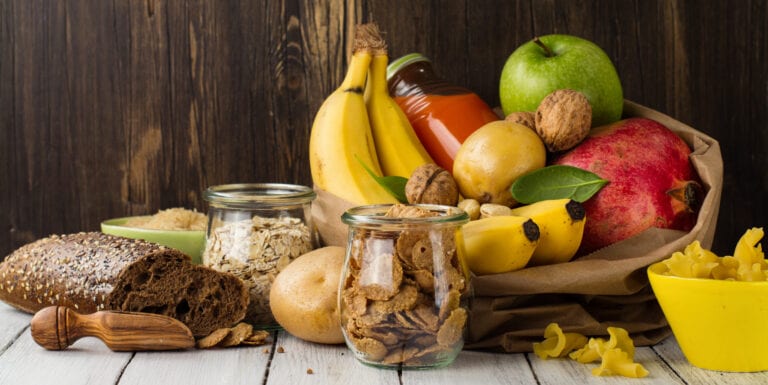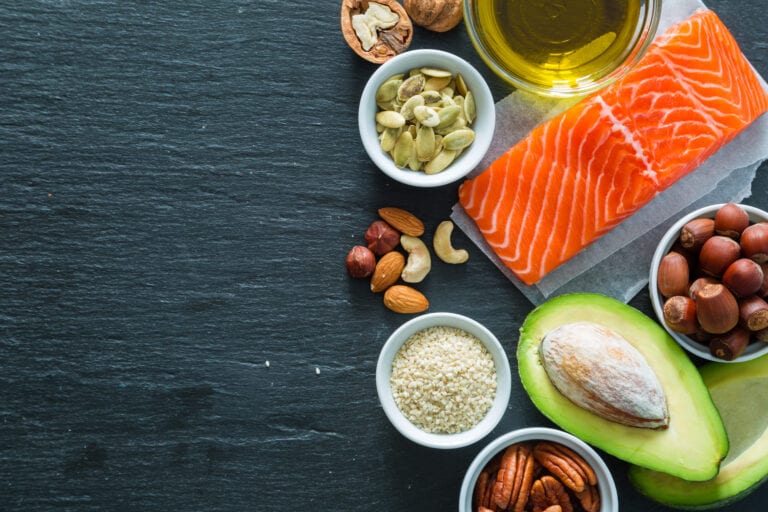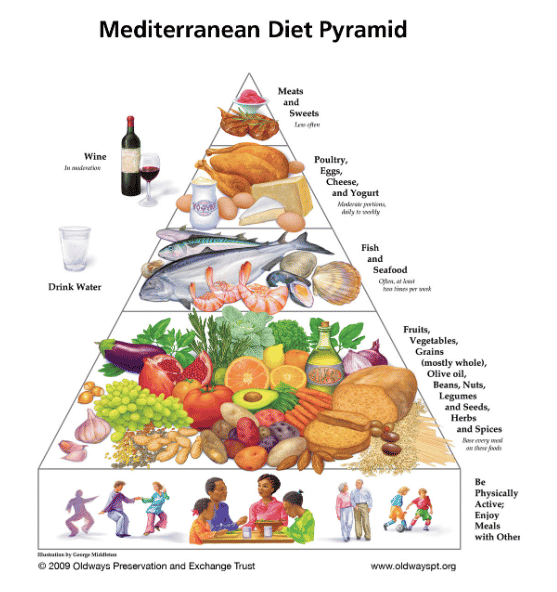Try to stop eating and drinking sweet foods and beverages.
This includes those with artificial sweeteners. Even fruit juices should be avoided. These items are high in empty calories and can spike insulin levels. If you refrain from eating sweets, your cravings for them will decrease. I noticed when on the Whole30 diet that fruits will also start to taste much sweeter and become more enjoyable to consume.
Avoid grains, even whole grains.
If you want to lose weight, or are having trouble controlling blood sugar, avoiding all grains is important. Grains contain high levels of carbohydrates. Grains fit into three broad categories.
Highly-refined grains –
Any foods made with white, wheat or enriched flour. Some examples include bagels, focaccia bread, pizza, pancakes, pastries, donuts, cookies, chips, pretzels etc. White rice, tortillas, most granola bars, and ready-to-eat breakfast cereals also fit into this category. Highly refined grains should ALWAYS be avoided.
Moderately-processed whole grains –
These foods are not as processed as the highly refined carbs but contain rapidly-metabolized starches which spike blood sugar levels much like their highly-refined counterparts. Examples in this category include whole grain versions of pastas, crackers, breads, couscous, brown rice cakes, puffed grain cereals, muesli, and granola. People at goal weight without diabetes, high triglycerides, or insulin resistance can eat moderately-processed whole grains in limited quantities.
Intact whole grains –
These are grain products that have not been processed. Examples include whole unpearled barley, wheat and rye berries, oat groats, brown rice and millet. These are the healthiest grains available but, again, should only be eaten by those who are at goal weight, don’t suffer from diabetes, insulin resistance, or high triglyceridemia.
Eat nine servings of whole fruits and vegetables daily but eat the vegetables first.
Most frozen vegetables are almost as good as the fresh variety. Be sure to eat more vegetables than fruit and eat vegetables with every meal, even breakfast. Eat the vegetables whole instead of juicing them. Steer away from starchy vegetables such as potatoes. Keep serving sizes of yams, carrots and sweet potatoes small.
All fruit is not created equal.
The best fruits to eat are apples, pears, berries and citrus fruits. Dried fruits should be avoided as they contain concentrated sugars. The only exception is dried prunes which have a lower glycemic load. Higher sugar fruits such as bananas, pineapple, grapes and mangoes should be consumed in moderation.
Eat beans and legumes regularly.
These are best prepared from the dry versions. Be careful when using canned beans. Many contain added sugars and fat. Beans and legumes add vegetable protein to the diet and have less of an impact on weight gain and blood sugar than whole grains.
Try to eat good fat, protein and fiber with each meal and snack.
This has a couple of benefits. First, blood sugar will rise more slowly and increase satisfaction. Secondly, combining these leads to a longer digestion time which curbs hunger.
Don’t skip meals.
I know intermittent fasting is currently popular and I like to practice it myself. Eating a good breakfast and small, frequent meals has been shown to help with weight loss.
Eat unsweetened cultured dairy products.
Some studies have shown that eating dairy reduces diabetes and obesity risk. It is also better to choose whole or 2% milk products instead of the low-fat or non-fat variety. Eating aged cheeses is preferable to drinking milk. Kefir and yogurt can be a great source of microorganisms (probiotics), calcium and protein. It is always best to consume plain yogurt and sweeten it yourself. I like to use blueberries, raspberries and blackberries for this purpose.
Always read food labels.
Don’t fall for marketing slogans such as “healthy” or “low-fat.” Avoid packaged foods that contain added sugar, refined grains and bad fats. Remember, it is always best to eat whole foods whenever possible. If it doesn’t come with a label, it is probably much healthier for your body.
Plan ahead.
Often we make poor choices when in a hurry or when we haven’t purchased the correct ingredients for healthy meals. Stay away from fast food and limit trips to restaurants.
Exercise!
My readers are probably tired of hearing this but it is probably the most important key to health, happiness and weight loss. Be active, take the stairs, park further from your destination and walk. There are many ways to get exercise, you don’t necessarily have to live at the gym to accomplish this.
Get enough sleep.
This is another thing that comes up over and over in my posts. Lack of sleep puts you at a higher risk for type 2 diabetes.









